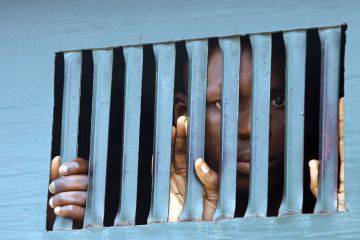National Issues
The Life Of A Journalist, “Your ID Card Is Your Salary” -By Abdullahi Adda’u Turawa
Addressing the disparities in journalist compensation in Nigeria is just one facet of a broader set of challenges faced by the media industry in the country. To build a thriving and responsible media ecosystem, concerted efforts from journalists, media organizations, government authorities, and the public are needed.

Journalism is often regarded as the fourth estate of democracy, playing a pivotal role in upholding the principles of transparency, accountability, and public awareness. In Nigeria, a country with a diverse and dynamic media landscape, journalists are essential agents of change. However, the compensation of journalists in Nigeria is a topic riddled with stark disparities. While some journalists receive decent salaries, others are severely underpaid, and a few even resort to questionable means for sustenance.
At the upper end of the spectrum are well-paid journalists in Nigeria. These individuals are typically associated with established media organizations, such as national newspapers, television networks, and reputable online platforms. They benefit from structured pay scales, regular salaries, and employee benefits, which are often in line with international standards. These well-paid journalists are usually seasoned professionals who bring years of experience and expertise to their work. They play a crucial role in upholding journalistic integrity and quality reporting.
In stark contrast, a significant number of journalists in Nigeria struggle with meager salaries that barely cover their basic needs. Many local and regional media outlets simply cannot afford to pay competitive wages. As a result, these journalists often face financial hardships, which can compromise the quality of their reporting. Low salaries can lead to a susceptibility to corruption, as some may be tempted to accept bribes in exchange for favorable coverage. The issue of underpayment raises concerns about media ethics and the overall health of journalism in the country.
The most concerning aspect of journalism compensation in Nigeria is the existence of a subset of journalists who do not receive a regular salary. Instead, they rely on unofficial channels, often collecting bribes or “brown envelopes” for reporting on specific issues or events. These individuals often work as freelancers or contributors for various outlets. This practice is detrimental to the credibility of journalism, as it fosters an environment where news coverage is driven by monetary incentives rather than journalistic integrity.
The disparities in journalist compensation in Nigeria have far-reaching consequences. Underpaid journalists may lack motivation, leading to a decline in the quality of reporting. On the other hand, those relying on bribes risk compromising their journalistic ethics and objectivity, which undermines the public’s trust in the media.
Addressing the issue of journalist compensation in Nigeria requires a multi-faceted approach. Firstly, media organizations, both large and small, should strive to improve the salaries and working conditions of their journalists. This will help retain experienced professionals and attract new talent to the field.
Secondly, government bodies and industry associations can play a role by advocating for fair wages, promoting ethical journalism, and providing support to struggling media outlets.
Media consumers should be discerning and support outlets that uphold journalistic ethics and provide fair compensation to their staff. By encouraging a culture of responsible journalism, the public can contribute to positive change in the industry.
The disparity in journalist compensation in Nigeria is a complex issue that needs urgent attention. Well-paid journalists contribute to the quality and credibility of journalism, while underpaid and unremunerated journalists face significant challenges. To ensure the continued growth of a vibrant and responsible media landscape in Nigeria, efforts must be made to bridge these disparities and promote ethical reporting. This will ultimately benefit not only journalists but also the society they serve.
Addressing the disparities in journalist compensation in Nigeria is just one facet of a broader set of challenges faced by the media industry in the country. To build a thriving and responsible media ecosystem, concerted efforts from journalists, media organizations, government authorities, and the public are needed. A commitment to press freedom, ethical journalism, and the safety and welfare of journalists is paramount for Nigeria’s media landscape to flourish.
Abdullahi Adda’u Turawa, ANIPR, Zaria, Nigeria



















